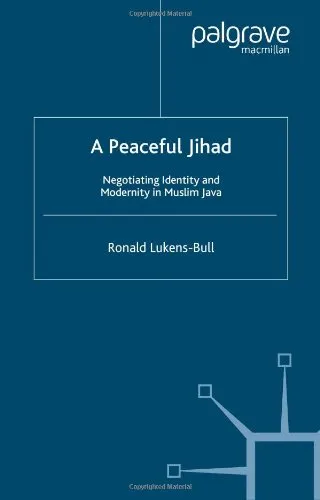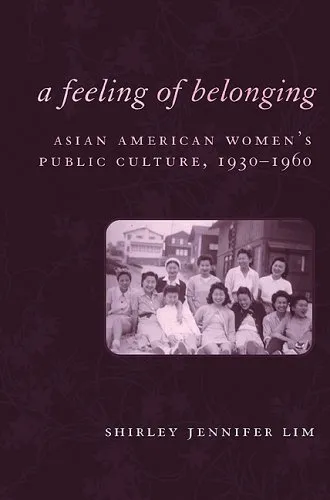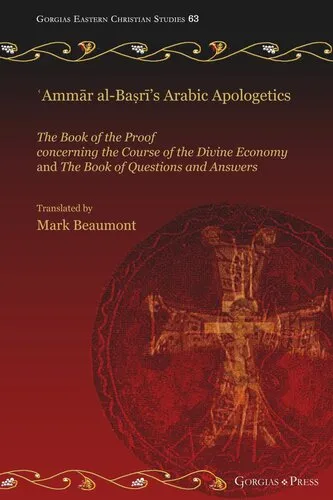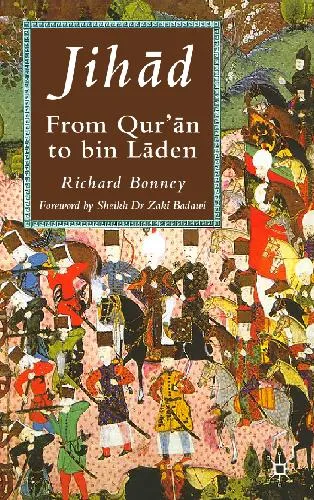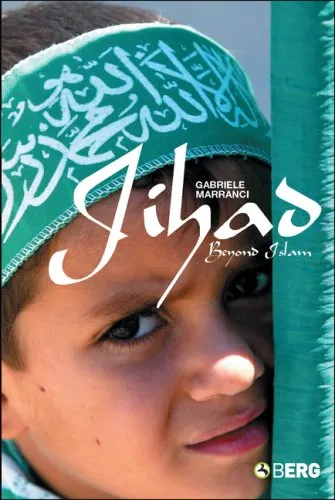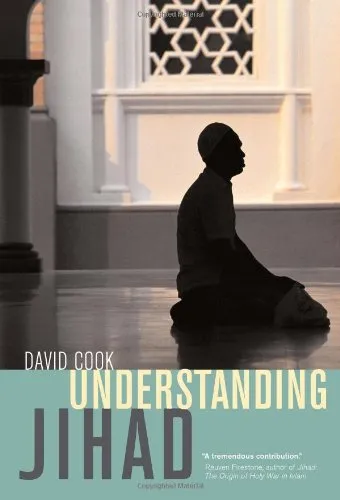A Peaceful Jihad: Negotiating Identity and Modernity in Muslim Java (Contemporary Anthropology of Religion)
4.5
Reviews from our users

You Can Ask your questions from this book's AI after Login
Each download or ask from book AI costs 2 points. To earn more free points, please visit the Points Guide Page and complete some valuable actions.Related Refrences:
Introduction to "A Peaceful Jihad: Negotiating Identity and Modernity in Muslim Java"
Written by Ronald Lukens-Bull, "A Peaceful Jihad: Negotiating Identity and Modernity in Muslim Java" explores the interplay between tradition and modernity within the context of Muslim communities in Java, Indonesia. This pioneering work delves into the lives of Javanese Muslims and their efforts to construct a peaceful Islamic identity while confronting the challenges of an increasingly modern world.
In this book, the term "peaceful jihad" symbolizes the conscious struggle to navigate tensions between religious commitments, cultural traditions, and modern societal changes. By focusing on Java, one of Indonesia's most culturally rich and religiously vibrant islands, the book provides a profound understanding of how Muslim identity is negotiated in today’s ever-evolving sociopolitical climate. This work refrains from the stereotypical narratives of Islam often seen in Western discourse, offering instead a nuanced, humanizing portrayal of Muslim practices, education, and daily life.
Through immersive fieldwork, ethnographic insight, and academic rigor, Lukens-Bull captures the complexities of a community striving for harmony while juggling the dynamic forces of local tradition, global Islam, and the pressures of modernity. This book not only deepens our understanding of the Javanese Muslim experience but also sheds light on the broader implications of Islamic identity in the contemporary world.
Detailed Summary of the Book
"A Peaceful Jihad" is a masterful investigation into how Muslims in Java simultaneously embrace and challenge modernity. Through fieldwork conducted primarily in pesantren (Islamic boarding schools), the book illustrates how Javanese Muslim leaders and communities achieve a delicate balance between preserving traditional Islamic values and adapting to global influences.
Lukens-Bull highlights the critical role of education in this negotiation. Pesantren not only function as centers for religious learning but also as institutions fostering socio-cultural reform. The analysis reveals how pesantren leaders educate their students to be devout Muslims while equipping them with the skills to thrive in a world dominated by technological and economic modernization.
The narrative also delves into the dynamic relationship between tradition and reform. By exploring themes such as the integration of Islamic values into democratic politics, the embrace of capitalist economic systems within a religious framework, and the evolution of religious practices, the book underscores the vibrant and adaptive nature of Muslim Java.
At its core, this book emphasizes the principle of coexistence. It portrays Javanese Muslims as agents of dialogue and negotiation, rejecting extremism and violence in favor of a harmonious approach to living their faith. This makes "A Peaceful Jihad" not only an academically significant contribution but also a relevant text for understanding Islam in the 21st century.
Key Takeaways
- Islamic identity is not static; it evolves and adapts in response to cultural and global changes.
- The pesantren system serves as a crucial space for negotiating tradition and modernity in Java.
- Modernity and tradition are not inherently oppositional; they can coexist and even complement each other when approached thoughtfully.
- Peaceful coexistence and negotiation are integral to the Javanese Muslim approach to modern challenges.
- The Javanese experience offers valuable insights into the broader dynamics of Islamic identity in an increasingly globalized world.
Famous Quotes from the Book
"Peaceful jihad does not seek to fight but to invite — it is a battle over narratives, identities, and the meaning of faith in a changing world."
"Pesantren exemplify how traditional institutions can serve as sites of both preservation and innovation."
"Far from rejecting modernity, Javanese Muslims embrace it with selectivity, charting a path that aligns with both their faith and their future."
Why This Book Matters
In an era where Islam is often misrepresented as being incompatible with modernity, "A Peaceful Jihad" stands out as a corrective narrative. The book challenges binary perspectives that frame tradition and modernity as opposing forces. Instead, it demonstrates through the Javanese example how Islamic communities can thrive in the modern world while staying true to their spiritual and cultural roots.
This work is particularly relevant for policymakers, academics, and anyone interested in global religious studies, providing evidence that Islam, like all traditions, is dynamic and multifaceted. Through this "peaceful jihad," Javanese Muslims reject extremism and violence, offering a model of coexistence that resonates deeply in today’s fragmented world.
Lukens-Bull's ethnographic approach makes the book accessible and relatable, bridging the gap between academic scholarship and public understanding. It is not merely an academic exercise but a profound exploration of what it means to be Muslim in a rapidly changing society.
Ultimately, "A Peaceful Jihad" is an inspiring testament to the resilience and adaptability of humanity's faith traditions. It teaches us that peaceful negotiation, rather than polarized conflict, can generate harmony and progress in the face of modernity’s challenges.
Free Direct Download
You Can Download this book after Login
Accessing books through legal platforms and public libraries not only supports the rights of authors and publishers but also contributes to the sustainability of reading culture. Before downloading, please take a moment to consider these options.
Find this book on other platforms:
WorldCat helps you find books in libraries worldwide.
See ratings, reviews, and discussions on Goodreads.
Find and buy rare or used books on AbeBooks.
1438
بازدید4.5
امتیاز0
نظر98%
رضایتReviews:
4.5
Based on 0 users review
Questions & Answers
Ask questions about this book or help others by answering
No questions yet. Be the first to ask!
